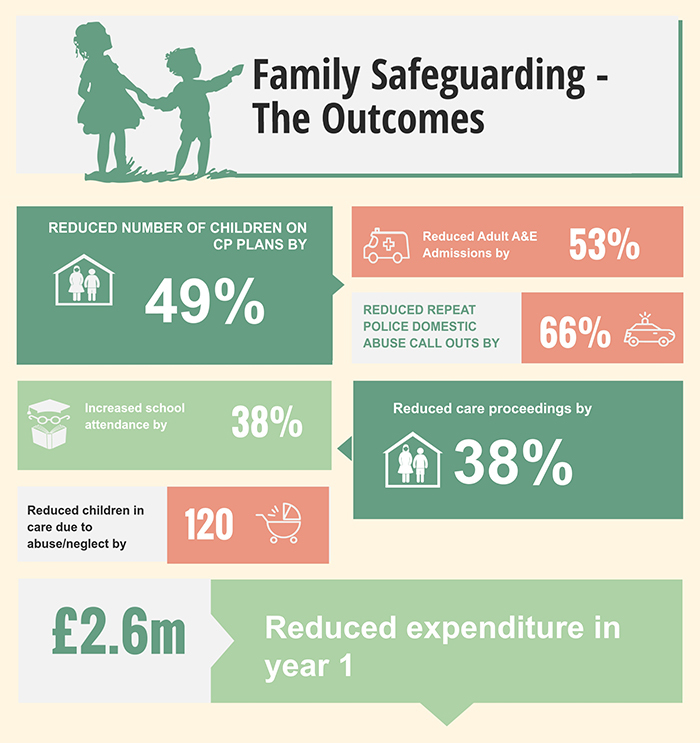
The launch of the Department for Education's Social Care Innovation Programme has significantly changed the way that numerous local authorities are able to use their case management solution. Many have configured forms and pathways to support their vision of how they want their social workers to practice.
After all, if you are training staff to use a particular approach in practice, you would want them to have a way of recording that corresponds with that approach. A good case management system will support your chosen model of social work practice, not hinder it. Here is an example of one practice model being used by Hertfordshire County Council today.
Family Safeguarding
This approach was developed in 2015 by Hertfordshire County Council in partnership with University of Bedfordshire. Funding was provided by the Social Care Innovation Programme to implement this approach across the entire council. This model works on the basis of a whole-family approach and therefore requires the expertise of not just children's social workers but also specialisms within the fields of substance misuse, domestic violence and mental health.
All staff at Hertfordshire were also trained in using Motivational Interviewing as an approach to working with children and families. According to Donald Forrester, Professor in child and family social work at Cardiff University, "MI is an approach aimed at helping people resolve ambivalence in order to make lasting change more likely".
In Hertfordshire today, frontline social work teams for children in need and children subject of child protection plans are multi-disciplinary and co-located. This model required the council to look for ways to use the Liquidlogic case management software to support multi-disciplinary and integrated assessments. As a result, the Family Safeguarding Workbook was created.
A new way of recording
The Workbook sits alongside the Liquidlogic Children's Social Care System and consists of a number of summaries - "chapters"- one for each worker role involved with the family. Each worker is able to record their work and write a monthly summary, which is openly shared with the other workers in the team.
Because all staff are using the Workbook, the information can be combined to form an integrated family assessment. This is used to inform progress and help to direct their intervention. Monthly multi-agency group supervision sessions review progress. To support this new approach, workers are also asked to focus much more on recording significant information and to summarise activity rather than record every single contact. This, in turn, has freed up staff to spend more time working directly with children and families.
The Results

Outcomes for Hertfordshire County Council
Speaking about the implementation of the Family Working model at Hertfordshire County Council, Sue Williams, Programme Director, Family Safeguarding comments:
"We are absolutely delighted with the results that we have seen so far. Previously we found that practitioners had become disillusioned, they felt their work was largely process-driven and had left them feeling unconfident in carrying out direct work.
"Through having adults' specialists join our teams, training all our staff in motivational interviewing and our partnership with Liquidlogic to develop the Workbook, we have inspired practitioners to take a different approach to the way that they work with families and record their interventions.
"The results speak for themselves - reducing the number of children on CP Plans by almost half, significantly increasing the numbers of children who remain in their families and enabling practitioners to spend more time with children and families is remarkable."
Today the Family Safeguarding Workbook is being actively used in three local authorities, with a further three in the implementation process.
Models of practice
At Liquidlogic, we believe in working with councils to support their individual practice models, -Family Safeguarding is just one of those models. In addition, Liquidlogic supports the Signs of Safety model in six councils, with a further seven in the implementation process.
For further information about how Liquidlogic can support your social work practice, contact ida.cohen@liquidlogic.co.uk.
Ida Cohen is a Senior Social Work Consultant and qualified Practitioner at Liquidlogic.

